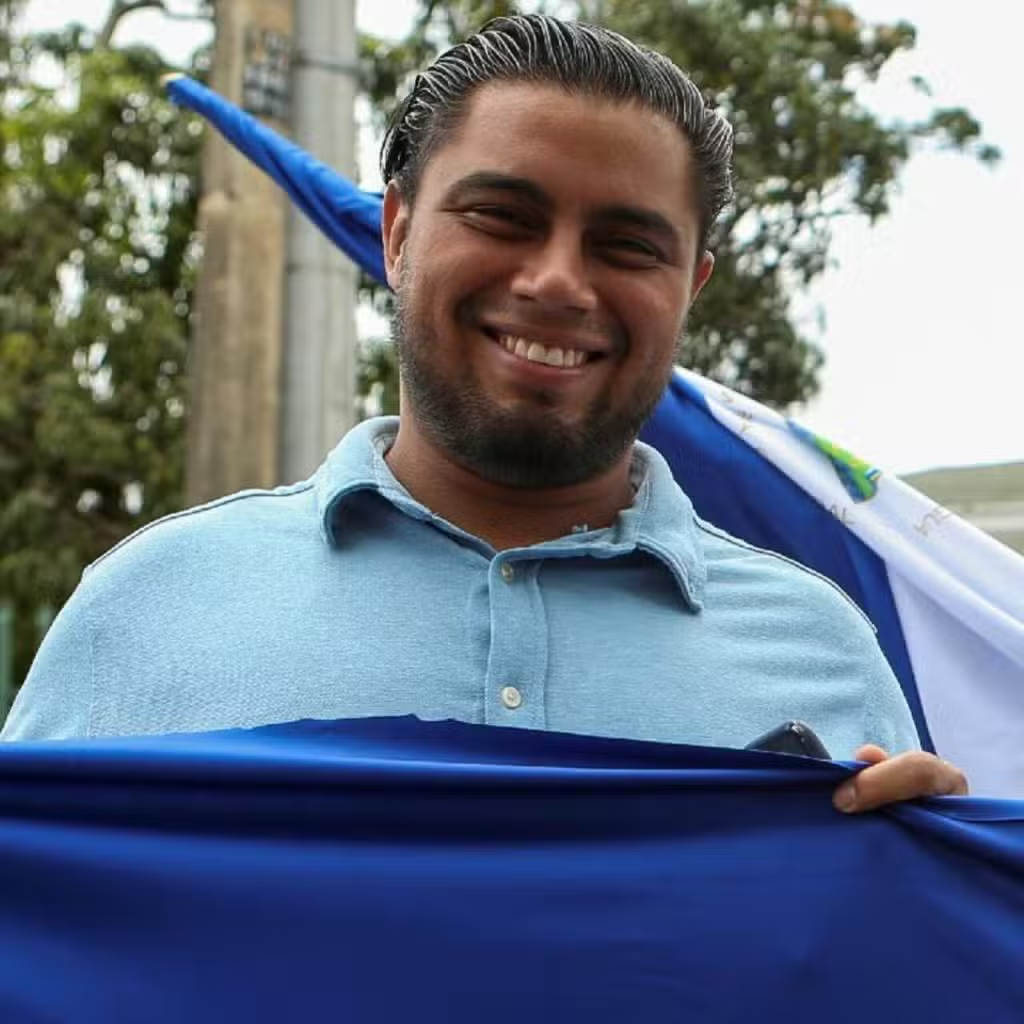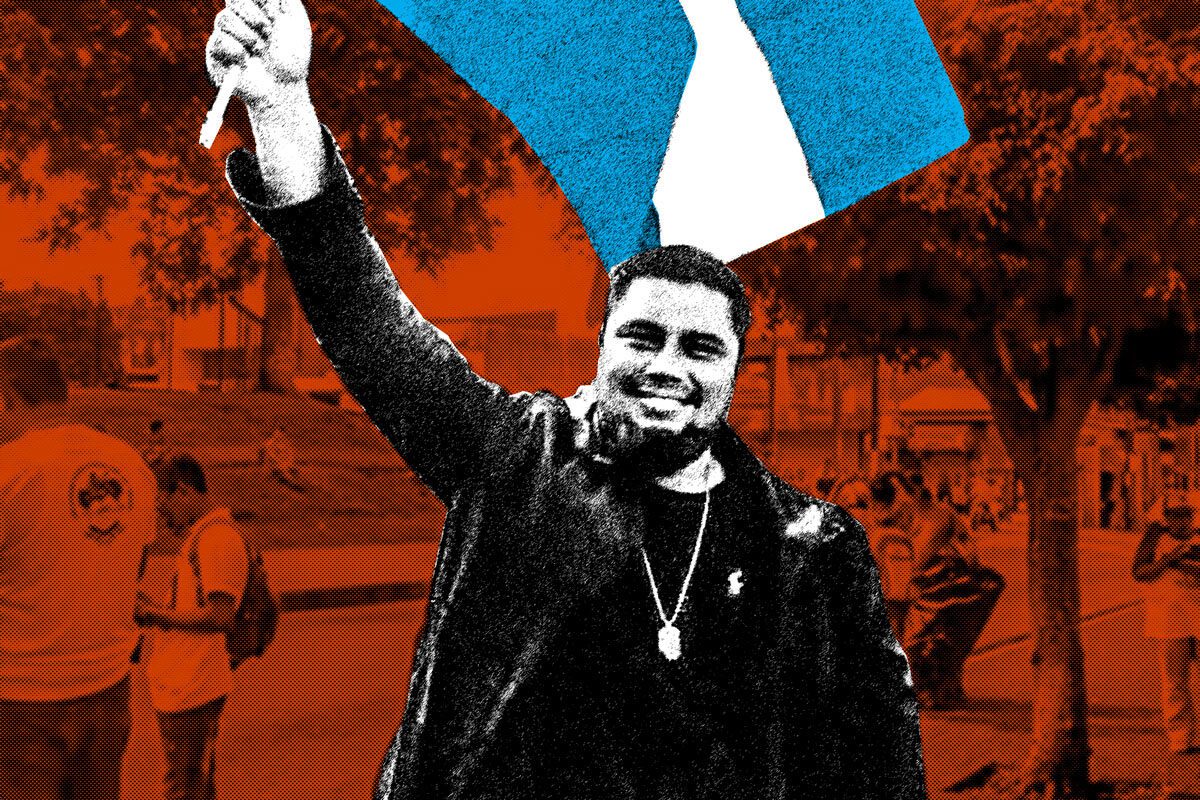I first interviewed Joao Maldonado by phone in September 2023. We had met at a gathering of exiles in San José, Costa Rica, where we’d both been invited for a traditional chicken soup meal. I arrived first and was surprised when he walked in. We chatted, he showed me the scars from the first attack, shared the findings of the investigation, and told me he was receiving threats again.
I had to leave early, but we exchanged numbers, and I told him I was interested in interviewing him for La Nación, Costa Rica’s leading newspaper, where I was working at the time.
Maldonado had only one condition for the interview: that it be published once he was out of Costa Rica and safely away from danger. At that point, he was already planning to resettle in the United States.
The interview was shelved for several months and finally published on January 10, 2024—the day he suffered the second attack. He had warned that the Ortega regime was out to eliminate him and had devised a new plan to do so.
For this second interview, we stayed in touch starting in January and first spoke in February, after he and his partner Nadia Robleto had left Costa Rica. This time, he had just one request: not to discuss his health. “I don’t want pity,” he told me. I didn’t honor that request—arguing that it was part of the story.
Question: Joao, after surviving 13 gunshots—five in the first attack and eight in the second—what’s your current health status?
First of all, I want to thank God, because He’s the only one who gave me the chance to still be here—there’s no other explanation. It defies logic that I’m alive except for my Lord Jesus Christ. I took eight bullets this time, and it’s been a tough, grueling process. I spent seven months in intensive care. I had injuries to vital organs—my liver was hit, my gallbladder was removed, and I had complications in my intestines. I had a fistula that took a long time to heal, but God made a miracle and it closed. One bullet struck me in the left side of my jaw, which has now been reconstructed. God has given me the chance to live. I’ve taken 13 bullets.
I’ve asked you this question before: Why is Joao Maldonado a target?
It’s not just Joao Maldonado. I believe any opponent working for change in Nicaragua, who believes that the only path forward is the end of the FSLN and the establishment of a democratic system, becomes a target of the dictatorship. I’m not the first. Sadly, others have been targeted and killed—like Rodolfo Rojas and many other comrades in the struggle. That’s the reality: anyone who pushes for real change in Nicaragua becomes a target of the dictatorship.
Who do you hold responsible for the attacks against you?
The attacks come from the dictatorship—from the tyranny. They operate through an intelligence network rooted in the military. They’ve been active in Costa Rica, even if Costa Rican authorities won’t acknowledge it. Costa Rica’s own intelligence services know there are regime operatives working there. And those operatives are using people I never would’ve suspected. I met with someone named Danilo Aguirre Sequeira just 15 days before the first attack. I never imagined it—I never suspected him, even though Costa Rica’s Judicial Investigation Agency (OIJ) found that most of the calls linked to the case originated from Nicaragua. They hadn’t yet identified the intellectual authors of the first attack… In the second attack, the only person who knew where I was going to be and who I was meeting with was Danilo Aguirre. He’s a regime operative—and I didn’t know it.
What was your relationship with him?
I met Danilo Aguirre Sequeira in 2018, after Operation Cleanup. I had survived that brutal crackdown and made it to Managua. While I was there, he was one of the people who helped me escape from Managua to Costa Rica. He got me and another person out.
So your relationship continued after that?
Yes, it did. I knew him as an opponent of the regime. I didn’t know his background. But everything happens for a reason—if it weren’t for this second attack, we wouldn’t know who he really is: a dictatorship operative.
Why did you agree to meet with him? You were just days or weeks away from leaving Costa Rica through the Safe Mobility program.
Remember when we did the first interview, I told you I was in a victim protection program. But that program doesn’t cover living expenses like rent or food. They tell you to quit everything—your job, your home, any place they might be monitoring. All they offered me was a weekly visit from officers to assess the situation. That was the extent of their support.
Everyone knows Costa Rica is one of the most expensive countries. My rent alone was 260,000 colones (around 520 USD), plus a deposit. The only assistance I got when they forced us to move was 160,000 colones (320 USD). We covered the rest—and all other expenses—ourselves. Our savings ran out. I even had to risk my life taking consulting gigs to cover the bills. I was already receiving threats and had been warned about a second attack.
In that context, Danilo contacted me, saying he was working on a project with a Mexican TV network and needed help with some interviews. He asked if I had a camera, and I said yes. He offered to pay me. I made the terrible mistake of trusting him—I admit it.

So you met with him, and that’s when they started tracking you?
Yes. I left the place I was staying the day before and told no one—not the person who lent me the car, not the one who gave me a place to sleep. The only one who knew where I was going was Danilo, because he picked the meeting spot. When we got to the hotel, strange things started happening—things that didn’t make sense.
What kinds of things?
He told me, “I’m staying at the hotel—I’ll come down now.” So I called and said, “I’m on my way,” and he told me to wait. Ten minutes later, I got there—he wasn’t around. (He was actually in the restaurant.) I called again and he said, “I’m just getting there.” That’s when I told Nadia, “Something’s off. I don’t like this.” Then he showed up, nervous, and said, “Let’s have breakfast here at the hotel.” That gave me a bad feeling.
Why do you say he was nervous?
He was pacing back and forth. Then he said, “Mind if I smoke a cigarette?” I said, “No way—I don’t even smoke. Let’s just get this over with. I don’t have much time.” He kept insisting we sit outside the hotel restaurant. I told him, “Let’s go inside.” He kept pushing to sit outside. When we finally went in, the staff asked for his room number to charge the bill, and he said, “I’m not staying here—I’ll pay in cash.” That set off all the alarms for me.
Even during breakfast, he stayed nervous. I asked him to review the videos and pay me, and he said, “Just leave them. I’ll have another job for you. Give me 15 more days to pay.” He didn’t think I’d survive. I got angry and left for my workplace, then headed to the university to register.
In San Pedro—the site of the attack?
Yes. But what needs to be emphasized is that long before I arrived at the hotel, he was already there, talking to the people who later tracked me…
What went through your mind when you realized you were being shot at again?I was about 20 meters from the university when they started shooting. I thought, They got me again.





